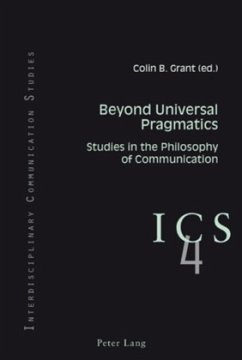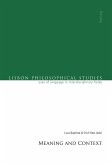The explicit ambition of this collection is to move 'beyond' the Universal Pragmatics of Jürgen Habermas. It is without doubt an ambitious programme whose architect has led since the 1960s a series of reflections on the rational potential of western society from the Enlightenment to the present. However, this theoretical emphasis on the irreducibility of the rational content of debate cannot avoid abstracting communicative universals from the empirical communication practices which are always embedded in multiple contexts of discourse, identity, media and institutions. This tension in Habermas's oeuvre has developed an antagonistic potential. An example of this antagonism can be seen in the distorting effects of a normative theory of communication whose very normativity means turning a blind eye to a history of social communication. For example, Habermas infamously neglects the constitutive role played by the media in constructions of what is held to be 'public' and even his morerecent revisions do not resolve this dilemma.
The nine contributions in this volume from the fields of psychology, politics, media, epistemology and aesthetics set out to move beyond the influence of communicative universals and propose alternative approaches to the challenge of reconciling autonomy, interaction and social organisation.
The nine contributions in this volume from the fields of psychology, politics, media, epistemology and aesthetics set out to move beyond the influence of communicative universals and propose alternative approaches to the challenge of reconciling autonomy, interaction and social organisation.








